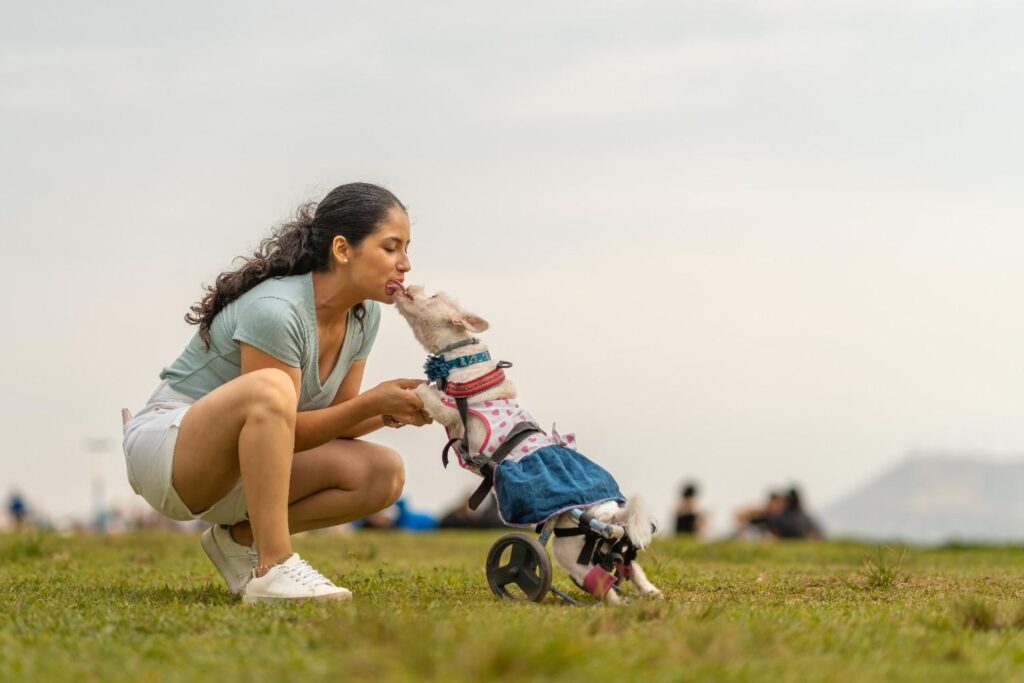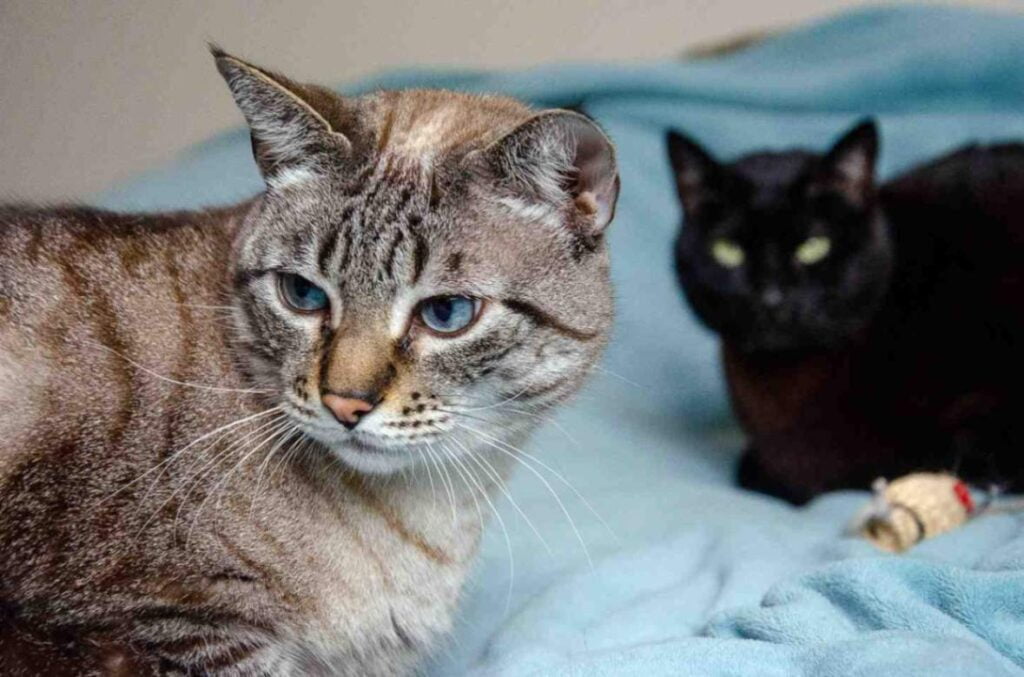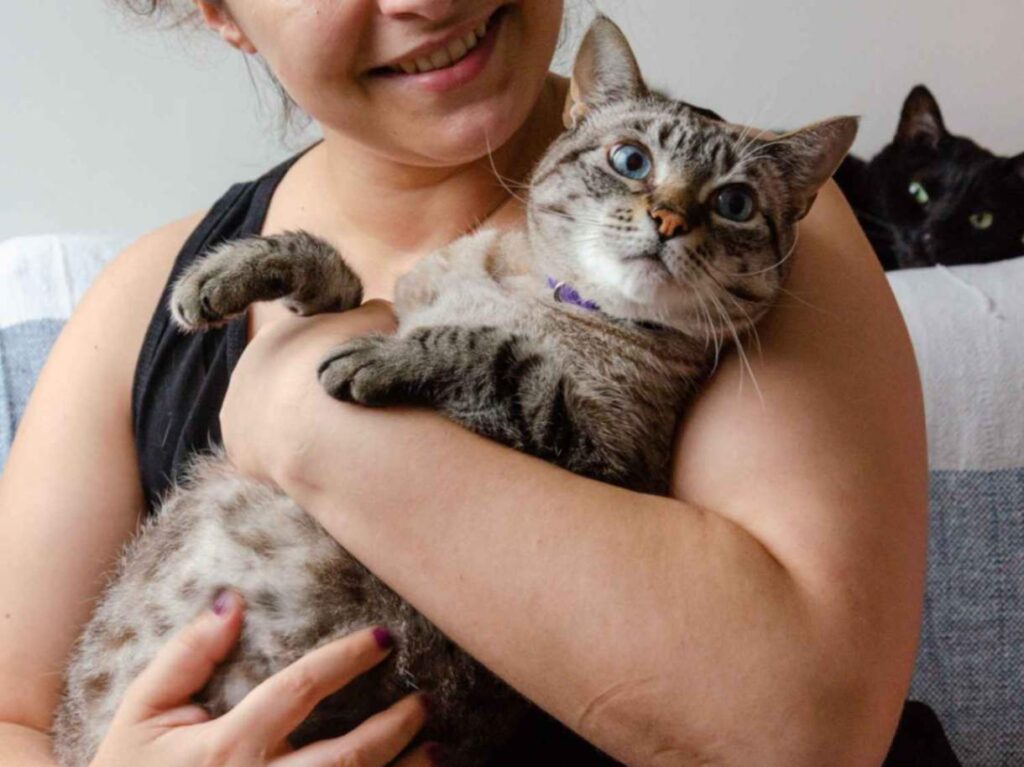The love you receive from an adopted pet is infinite. When you open your heart to a specially-abled pet, you enter a world full of love and perseverance. These magnificent creatures may have special needs due to ailments such as vision loss, limb amputation, or movement issues, but with patient and committed care, they can lead happier lives.
Adopting a disabled pet begins a remarkable journey of compassion and joy. It teaches us that regardless of physical ability, every creature needs love and may live a meaningful life. Continue reading to see how you can provide the best care for specially-abled pets while guaranteeing their happiness and quality of life.

Key Takeaways
- Adopting a Specially-Abled Pet Fosters a Deep Bond and Showcases a Commitment to Animal Welfare
- Disabilities in Pets, With Proper Care and Medical Attention, Can Be Managed to Allow a Fulfilling Life
- Simple Home Modifications and a Stable Environment Greatly Support Pets With Mobility and Sensory Challenges
- Pet Insurance Is Vital in Facilitating Quality Care for Specially-Abled Pets Without Financial Strain
Choosing a Specially-Abled Pet
Choosing a specially-abled pet may not be your first instinct when considering the adoption process, but it has numerous benefits. When you choose to open your heart and home to a pet with a disability, whether it’s vision impairment, deafness, or mobility issues, you’re providing a caring environment for an animal that may otherwise go unnoticed.
Adopting a specially-abled pet opens you to new opportunities and difficulties. Whether managing walks with a visually impaired dog or making a secure, accessible home for a cat with restricted mobility, you become an advocate for animal welfare. Adopting pets with disabilities demands ingenuity, patience, and the ability to adapt. It’s an opportunity to experience the world through your pet’s eyes, learn new methods, and create a meaningful relationship.
Welcoming a specially-abled pet into your life promotes acceptance and understanding. It offers essential life lessons about accepting differences, recognizing diversity, and concentrating on what is important—animals’ love and company. This helps your pet and can spread to other parts of your life, fostering a more caring and understanding attitude toward the world around you.
Unique Needs of Specially-Abled Pets

Special needs pets have different demands that require your awareness and adaptation. From chronic diseases to traumatic injuries, each disability poses unique problems requiring a specialized strategy to protect the pet’s health and quality of life. As you contemplate the various common pet impairments, remember that with the proper attention, treatment, and preventative care, your furry, feathery, or scaled friend may live a happy and loving life.
Here Are Five Unique Needs of Specially-Abled Pets to Keep in Mind:
- Accessibility and Environmental Modifications
Not every pet can easily explore the world. Blind or visually challenged pets may struggle to navigate stairs, loose carpets, or new layouts, and deaf pets may miss spoken signals. For these creatures, providing an accessible living space is critical. This can involve using ramps or carpet runners to improve traction, placing furniture in predictable locations, and guiding them with smell markers or tactile signals.
- Specialized Equipment and Supplies
Pets with disabilities need specialized equipment and advanced pet care. Blind dogs may benefit from harnesses with guiding handles, while cats with limited mobility need ramps or elevated litter boxes. Wheelchairs or orthopedic braces may increase movement in some animals. Consult a veterinarian to discover which equipment suits your pet’s needs.
- Tailored Training and Communication
Traditional training methods may be ineffective for dogs with different abilities. Sign language may be a valuable tool for deaf dogs, and positive reinforcement through food or clicker training can benefit all animals. Understanding your pet’s limitations and changing training techniques is essential for effective communication and bonding.
- Increased Veterinarian Care
Specially abled pets may require more regular veterinarian examinations and continuous medical care. Monitoring their condition, removing discomfort, and resolving health concerns require a more solid interaction with your veterinarian.
- Emotional and Mental Health
Animals, like people, can suffer irritation, anxiety, and sadness due to physical limitations. Enrichment activities adapted to their limitations, such as scent work for dogs or food puzzles for cats, may engage their minds and lift their moods. Love, patience, and understanding are essential for their emotional well-being.
Essential Things to Consider Before Adopting a Specially Abled Pet

However, before embarking on this special journey, being well-informed is crucial. Here are 8 key things to consider before adopting a specially-abled pet:
1. Self-Assessment: Evaluating Your Lifestyle and Resources
- Lifestyle compatibility: Go through your everyday lifestyle to figure out the essentials. Can you manage a pet with limited mobility on walks? Can you take care of their toilet routine? Would you be able to care for an anxious pet? The important thing is to take a look at your emotional and mental space before adopting special needs pets.
- Financial considerations: While food and routine vet appointments are expected to add to the care, you must also consider the costs of medicines and special equipment such as ramps, wheelchairs, or leashes. Gain a realistic understanding of the monetary limits to ensure everything is covered.
- Time Commitment: Disabled pets may need extra training and time. One of the things you should consider is whether or not you will be able to dedicate a certain amount of time to pet care. Before adopting a pet with special abilities, one must consider the expenditure and time required for pet training sessions.
2. Researching Different Disabilities and Their Implications:
The world of special needs pets is vast. Different disabilities require different care approaches. Research the disability of the pet you are thinking of adopting:
- Common Challenges: Understand the restrictions and behavioral concerns that come with the disability. For example, blind dogs may be more frightened by rapid movements or strange surroundings.
- Long-term Care: Investigate any potential health risks that may occur as a result of the impairment and continuing care management.
3. Choosing the Right Pet for Your Home:
Don’t get caught away by the first set of expressive eyes you meet. Shelters and rescue groups can help you choose a pet that suits your lifestyle and degree of expertise. Consider:
- Age and temperament: A high-energy puppy with restricted mobility may not be ideal for a first-time adopter.
- Personality Match: Animals have personalities, just as people do. Look for a pet whose temperament is compatible with yours and your surroundings.
4. Understanding the Adoption Process and Support Systems:
Adopting a specially-abled pet may require additional measures. Shelters and rescues may have particular pet adoption requirements or demand follow-up examinations. Be prepared to talk about your resources and dedication to their care.
- Ask questions. Don’t be afraid to ask about the pet’s medical history, behavior with children or other pets, and any unique requirements.
- Seek help. Many shelters and rescue organizations provide post-adoption assistance, including training ideas, access to veterinary professionals, and even support groups for pet owners in similar situations.

5. Adapting Your Home for Safety and Accessibility:
Making your specially-abled pet’s environment more accessible is critical for their welfare. This may involve:
- Blind and visually impaired pets: Remove tripping risks such as loose carpets and electrical wires. Keep furniture placement consistent and use smell markers or auditory cues to direct them.
- Deaf pets: Invest in visual indicators like doorbell flashing lights and smoke alarms. Learn simple hand signals or use vibrating collars to catch their attention.
- Pets with Limited Mobility: Install ramps to make climbing stairs easier, use raised food and drink bowls for comfort, and consider non-slip surfaces to prevent falls.
6. Preparing for Veterinary Care and Potential Medical Needs:
Specially-abled pets sometimes require more regular veterinarian visits and continuing medical care. This may involve:
- Developing a relationship with your veterinarian: Meet with your veterinarian to discuss your pet’s requirements and develop a care plan.
- Understanding Potential Treatment Costs: Research prevalent medical disorders related to your pet’s impairment and plan for the cost implications of continued care.
7. Customizing Training and Communication Methods:
Traditional training methods may not always be suitable for particularly abled dogs. Consider:
- Positive reinforcement: Encourage collaboration by rewarding desired actions with sweets or praise.
- Alternative Communication: Learn hand signals for deaf dogs or use scent work or food puzzles to engage cognitively challenged canines.
- Patience and Consistency Training a differently-abled pet may need extra effort and attention. Maintain a constant strategy.
Pet Insurance for Specially-Abled Pets

Consider pet health insurance for your specially-abled pet. This coverage can help you manage possible expenses associated with ongoing treatments, emergency care, or even surgery, ensuring that financial restraints do not jeopardize the quality of care.
- When choosing pet insurance coverage, be sure it fits your pet’s specific health needs. Examine the policy’s coverage for chronic diseases, genetic and hereditary problems, and congenital disorders to ensure that it meets the unique needs of your differently-abled pet.
- Be proactive in learning about the terms of your selected insurance plan. Examine the exclusions, deductibles, and reimbursement alternatives carefully, and be bold and ask your insurance provider questions to clarify coverage details crucial to your pet’s care.
- Finally, balance the long-term benefits of investing in a comprehensive pet health insurance plan with the potential dangers and expenses. By doing so, you can provide the finest possible care without the added stress of unexpected vet expenditures. This lets you focus on the most important thing: providing a loving and supportive home for your specially-abled pet.
Conclusion
By adopting special needs pets, you commit to developing its unique abilities and meeting its specific requirements, from ensuring safety features in your house to providing adapted exercise. Collaborating with skilled veterinarians to create a complete care plan and consider pet insurance to help with the financial elements of its advanced needs is critical.

0 Comments